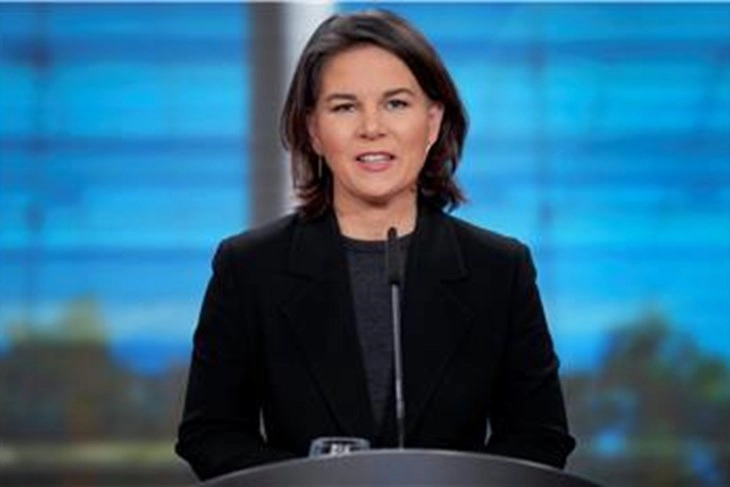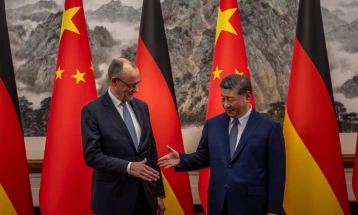Germany's Baerbock: Dialogue, not arms, must solve Ukraine conflict

Kiev, 17 January 2022 (dpa/MIA) - German Foreign Minister Annalena Baerbock called for a peaceful resolution of the Ukraine conflict during her visit to Kiev on Monday, as tensions with Russia featured high on the agenda.
"Diplomacy is the only viable way," the Green politician said following a meeting with her Ukrainian counterpart Dmytro Kuleba.
There are fears in Ukraine, shared by its Western allies, of a possible invasion following a major build-up of Russian troops near its eastern border.
Ukraine has for years called on Germany to deliver arms to help bolster its self-defence capabilities. The new centre-left coalition under Chancellor Olaf Scholz argues that sending weapons would only escalate the crisis.
But Baerbock stressed that "any further aggression would come at a great cost for the Russian regime."
The European Union and the United States have threatened harsh sanctions in the event of a Russian invasion of Ukraine.
Baerbock spoke out in favour of reviving the four-way Normandy format, which brings Moscow and Kiev to the table to discuss security issues with Berlin and Paris as mediators.
The last such meeting took place in Paris in 2019.
The German minister announced that she would soon visit the line of contact in Ukraine's eastern region of Donbas, which pro-Russian rebels control parts of, with French Foreign Minister Jean-Yves Le Drian.
The situation there is "more than depressing," she said after talks at the Organization for Security and Cooperation in Europe's (OSCE) mission in Kiev.
"We need progress in the implementation of the Minsk agreement," Baerbock added, referring to a stalled peace process for the region.
Ukraine and Russia have accused each other of violating that agreement.
According to UN estimates, more than 14,000 people have been killed in fighting between Ukrainian government troops and Russian-backed separatists in Donbas since 2014.
The EU and the US have imposed sanctions on Russia over the conflict.
Referring to a major cyberattack that recently targeted Ukrainian government websites, Baerbock offered to make experts from Germany's Federal Office for Information Security available for support and clarification.
Russia has denied anything to do with the hacking attack, after Kiev said there were indications that it originated in that country.
Germany's top diplomat is also scheduled to meet Ukrainian President Volodymyr Zelensky later Monday in Kiev, before travelling onwards to Moscow for the second leg of her trip.
Baerbock's trip to Ukraine comes on the 30th anniversary of the establishment of diplomatic relations between the two countries.
In her statement on departure, she said this was a "good opportunity for an update" and vowed to work on strengthening Ukraine's potential.
"I therefore want to talk about initiatives for the sustainable modernization of the Ukrainian energy sector," she said. To that end, plans to develop hydrogen power and bolster cyber defences are also on the agenda in Kiev.
Her visit to Russia, the first since she took office in December as part of Germany's new coalition government, comes amid international efforts to address spiralling tensions between Moscow and the West. She is set to meet with Russian Foreign Minister Sergei Lavrov on Tuesday.
"A prerequisite for diplomacy is to understand your counterpart's point of view, even if you sometimes have completely opposite opinions. That is why inaugural visits like these are important, especially in such difficult times," Baerbock said upon departing Berlin.
"As a new federal government, we want substantial and stable relations with Russia," she said, while adding, "The list of conflict issues we have to talk about is long."
Among other things, a 2019 murder in Berlin allegedly ordered by the Russian state and the poisoning of Russian dissident Alexei Navalny have taken a toll on Berlin-Moscow relations in recent years.







